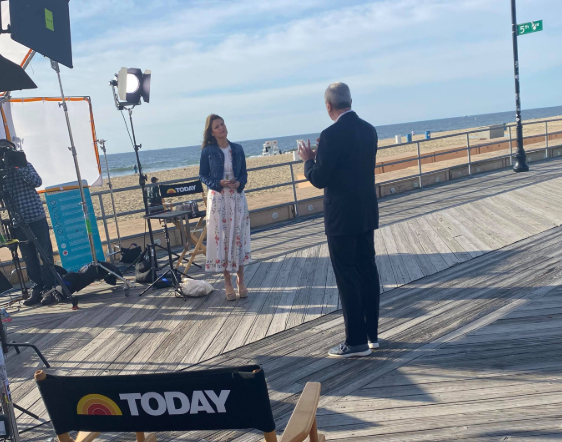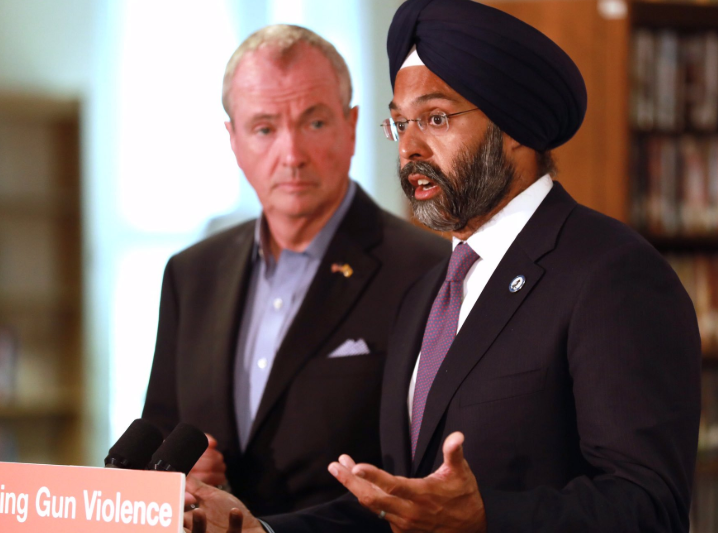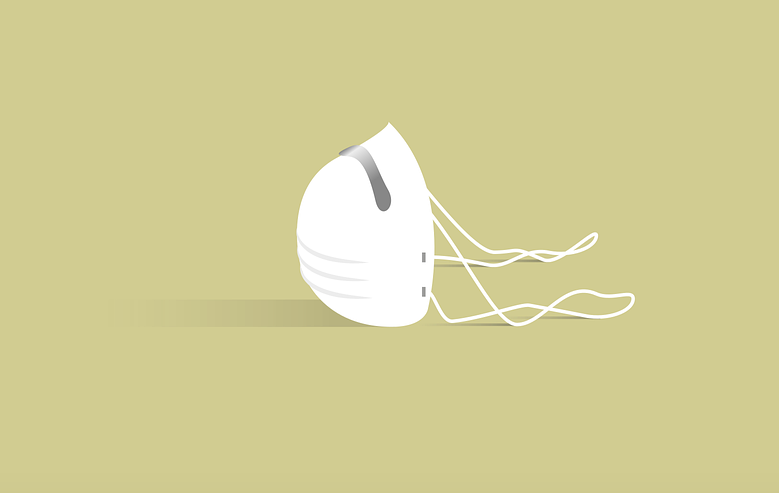
By Tom De Seno
_
A review of the pleadings filed on Friday in State v Mayor John Moor and Asbury Park, docket number C-56-20, reveals that Governor Murphy filed a complaint against the City and sought an emergent preliminary injunction (which was ultimately granted). The purpose was to restrain Asbury Park from enforcing their resolution of last Wednesday, where they tried to allow Asbury Park restaurants to conduct indoor dining.
People waiting to read the pleadings to finally see the “data that drives the dates” as Murphy likes to put it, were greatly disappointed. There was no scientific material attached to the pleadings.
–
This is odd because New Jersey Court Rules command that on such an application, where no sworn testimony is taken (there was none) there would have to be 1st party affidavits from witnesses setting forth the scientific facts. Rule 1:6-6 states:
“If a motion is based on facts not appearing of record, or not judicially noticeable, the court may hear it on affidavits made on personal knowledge, setting forth only facts which are admissible in evidence to which the affiant is competent to testify and which may have annexed thereto certified copies of all papers or parts thereof referred to therein.”
Not only were there no affidavits attaching scientific data, no scientists were even identified. The State only said the Governor “consulted with officials from the Department of Health.” No credentials of these officials were identified, nor was their research, findings or recommendations attached to the motion. There was nothing attached.
The restauranteurs of Asbury Park and elsewhere have a right to see what scientific evidence supports keeping indoor dining closed while allowing indoor shopping, seminars, office work and other activities for hours on end. Without that showing, there is an equal protection issue to be raised under the 5th and 14th Amendments.
Is there really any “data” behind the dates? If there is, the Court didn’t burden the State with presenting any, even though the law commands it be shown. In fact, on such an application, the Court is supposed to use the heightened “clear and convincing evidence” standard. Instead, no evidence was submitted at all.
The procedure used was odd as well. It was brought by the Attorney General in the Chancery Court in Mercer County, which is an acceptable venue. However, the judge there, Robert Lougy, was himself the Acting Attorney General as recently as 2016. For no other reason than avoiding the appearance of conflict on such a prominent and important case, he should have transferred it to a Judge that did not recently represent one of the parties.
More troubling was the failure to give Asbury Park’s attorney time to file any responsive papers. It appears Asbury’s attorney would have had about 1 hour to read the entire application and prepare for oral argument, without time allotted for him to file opposition.

That’s no small matter. Under existing law, the Court is supposed to deny an emergent application and conduct a hearing if there is a genuine controversy raised as to the facts. Not allowing Asbury Park the simple due process of filing a responsive pleading also meant that the City didn’t have a chance to raise a controversy as to the facts in evidence (not that the State brought any).
Another Court Rule violation was the State’s presentation in their brief of news articles they found on the Internet that they claim supports their position. Such citations are hearsay and not admissible to prove that the contents of the article are correct. Also, the articles themselves were not attached; just the Internet addresses were stated.
Seven of these Internet citations were contained in a footnote and were nothing more than news reports from January from places like CNBC and The Wall Street Journal stating there is such thing as the novel coronavirus.
Two other Internet articles cited are more troubling. Upon reading them, which neither the Asbury Park attorney nor presumably the Judge were given time to do, they hold the opposite of what the State told Judge Lougy they mean.
The first was a report of a University Professor in Japan, indicating that closed environments facilitate coronavirus transmission (which would of course be true of the offices and stores Governor Murphy left open). Not only does the report not indicate restaurants should be closed, it states that the report itself is too preliminary to be relied upon.
The article was printed on a website called “medRxiv.” What do they do? They print articles from physicians about unfinished work they are doing, prior to peer-review, just to let the world know what they are currently working on. The article states this at the top: THIS ARTICLE IS A PREPRINT AND HAS NOT BEEN PEER REVIEWED. IT REPORTS NEW MEDICAL RESEACH THAT HAS YET TO BE EVALUATED AND SO SHOULD NOT BE USED TO GUIDE CLINICAL RESEASRCH.
More than that, the website itself added that it “SHOULD NOT BE REPORTED IN NEWS MEDIA AS ESTABLISHED INFORMATION.”
Bear in mind that an attorney is required by Court Rule to alert the Court to matters that are contrary to their position. This duty is made more important when the other side has been given no time to write a brief.
That demands this question be asked – did Judge Lougy rely on this unfinished work as evidence when the publisher says it isn’t scientifically worthy of a news report? More importantly, did the Deputy Attorney General who wrote the brief bring that to the Court’s attention during argument? Under the Court Rules, he was required to do so.
The final Internet news article cited presents even more troubling questions for the Attorney General, who seems to have gotten the facts and conclusions in the article completely backward in an effort to make the Court rule in the State’s favor.
The report turns out to be a letter written by several Chinese doctors about one alleged incident involving a restaurant in China back in February, where the working hypothesis is that the air conditioner blowing in a certain direction may have carried the virus between tables.
Here’s some of the things that don’t seem to have been brought to Judge Lougy’s attention. The authors admit that the air conditioner itself tested negative, and they did no experiment to determine if the gentle air flow actually could have carried any droplets. They state explicitly: “Our study has limitations. We did not conduct an experimental study simulating the airborne transmission route. We also did not perform serologic studies of swab sample–negative asymptomatic family members and other diners to estimate risk for infection.”

More than an omission, the Attorney General wrote in the brief that the patrons were “14 feet apart.” Not exactly. The letter says the 3 tables were in a line, 1 meter (3.3 feet) apart and includes a drawing for clarity. The entire room was 19 feet. The suspected infected person was at the middle table, not 14 feet from anyone else. Add the chairs and these parties were sitting very near to one another. This was before lockdown without patrons nor the restaurant using separated tables or heightened sanitary and hygiene conditions.
Here is the kicker: Does the report recommend closing the restaurant? No – they stated this: “We recommend strengthening temperature-monitoring surveillance, increasing the distance between tables, and improving ventilation.” Was that brought to Judge Lougy’s attention? Again, the Court Rules state the Attorney General should have during argument.
Furthermore, a review of the CDC database does not show any recommendation for restaurants to close. In fact, on May 27, 2020 the CDC issued a report on how a restaurant should stay open, including keeping tables 6 feet apart with heightened hygiene and respiratory etiquette, exactly as the Asbury Park professional restaurateurs seek to do. That also was not brought up in the Attorney General’s brief, and it should have been by Court Rule.
In total, the State presented not one scintilla of evidence, scientific or otherwise, that supports indoor dining being closed, while indoor dining with President Trump seems to be Ok, which Governor Murphy just did this weekend.
Instead, the State concentrated on its power to make Executive Orders conferred upon the Governor by the legislature in the 1941 Disaster Control Act, and that his orders preempt the actions of a municipality like Asbury Park.
What is left out of the State’s brief, and what Asbury Park was given no chance to challenge is that the Disaster Control Act allows this extraordinary power if the Governor can show that there is an emergency and (this is a very important and) that the Executive Order shall “meet the various problems presented by the emergency.”
That brings us right back to the State presenting no scientific evidence that the Order to keep restaurants closed “meets the various problems presented by the emergency” that can’t be solved by the same social distancing and hygiene etiquette being allowed in offices, liquor stores, big box stores and now small retail stores. We end up right back at the equal rights challenges, none of which is addressed in the State’s brief at all.
Here is what needs to be done. Asbury Park needs to file an emergent appeal requesting the injunction be voided and a remand back to Judge Lougy to require the State to provide actual evidence.
Also, Marilou Crane Halvorsen of the NJ Restaurant and Hospitality Association needs to have that group file to intervene in the case and demand the same thing. Individual restaurants also have the right to hire attorneys and do the same.
Judge Lougy has set July 10 as the return date to hear this matter for a final order. That’s after the biggest weekend of the year for restaurants and they can’t wait that long. It’s work or close time for many restaurants, with some having already closed, so Halvorsen needs to act immediately.
–
Tommy De Seno is an attorney and commentator residing in Asbury Park, New Jersey.


